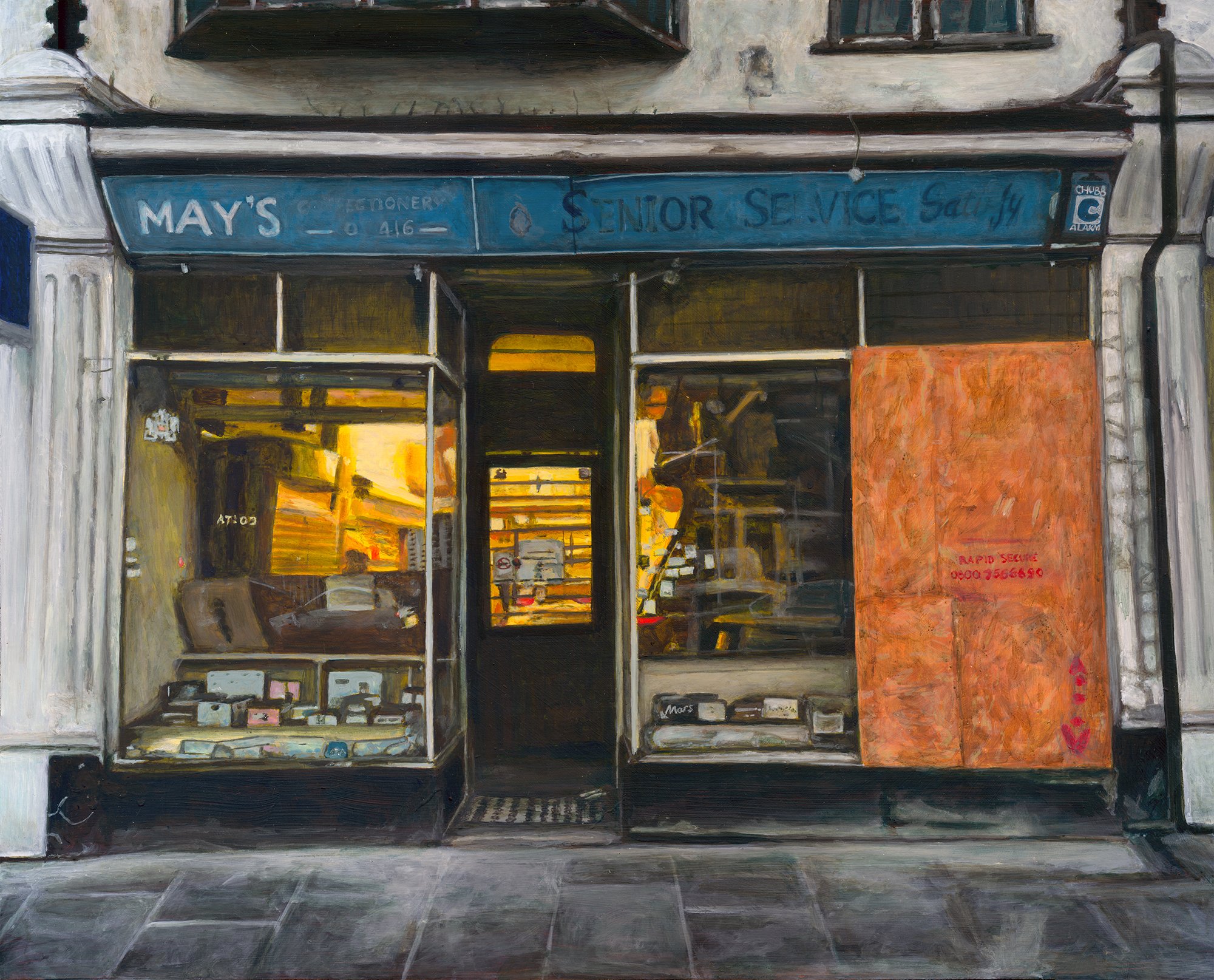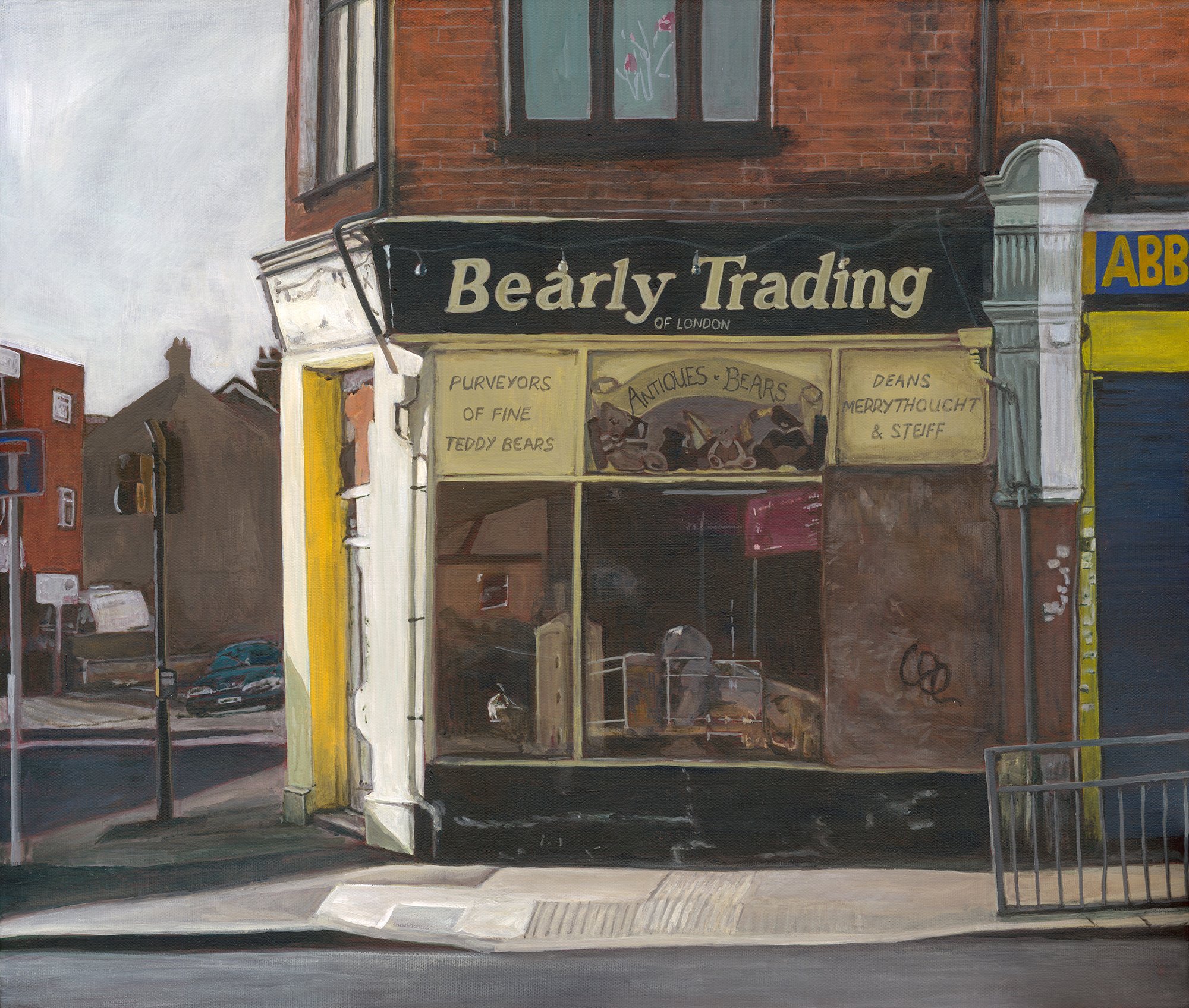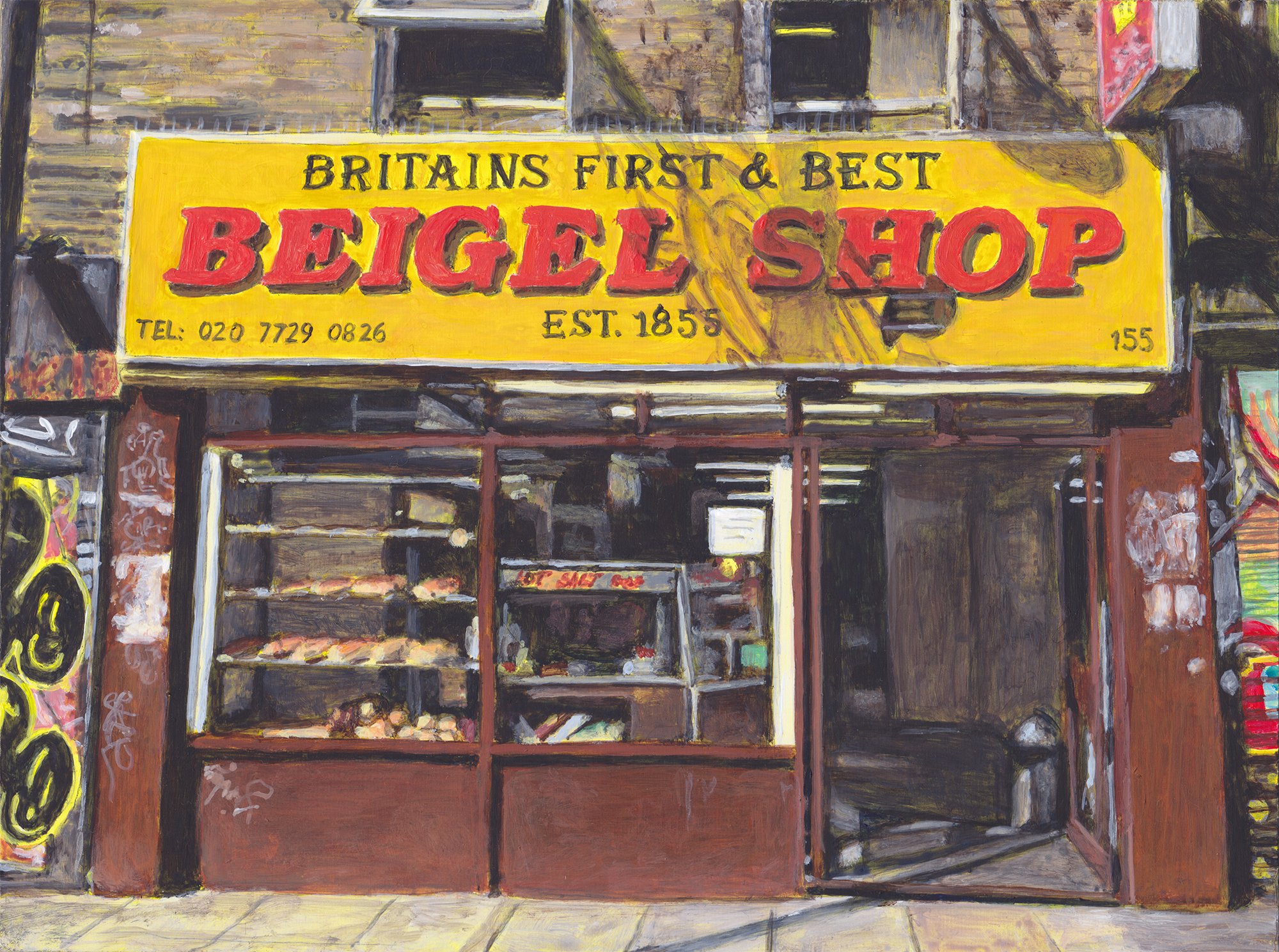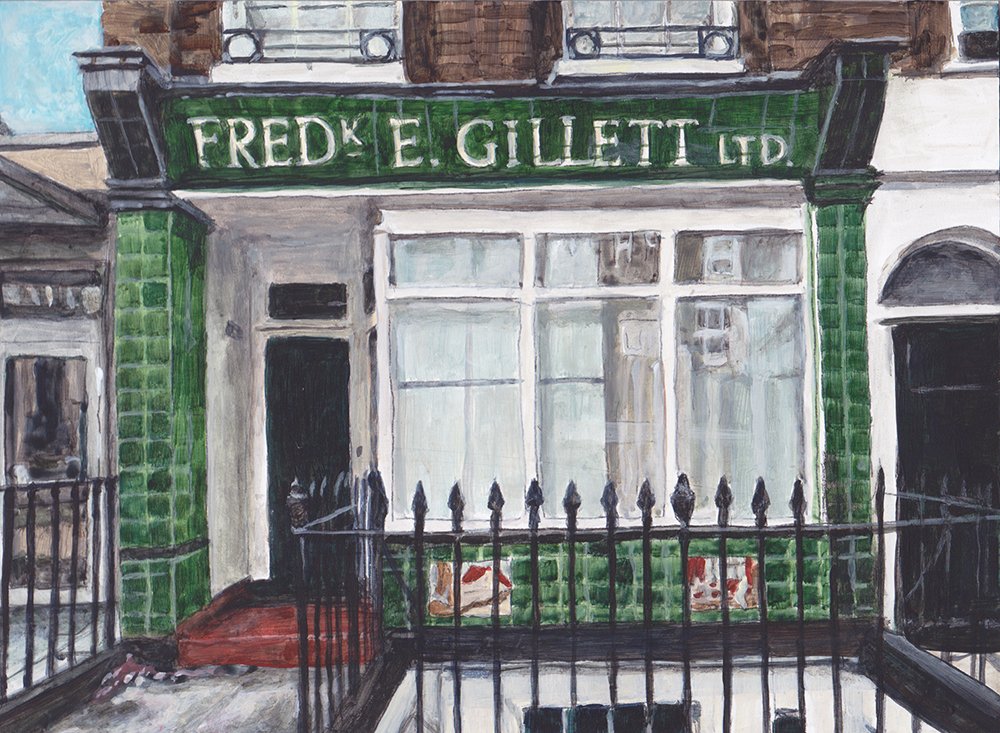ARTIST INTERVIEW: Michelle Heron
Tell me about yourself. What inspired you to become an artist?
I’m a realism painter based in rural Lincolnshire, but originally from Norwich, Norfolk. I don’t remember ever thinking I chose to be an artist, I felt like it chose me, as I was always drawing my immediate environment from a young age. I used it as an escape as I was really shy and didn’t have the best childhood. So I used to spend hours in my room trying to recreate something I’d seen in a Reader’s Digest book. Having supportive teachers praise me and show off my talent at a young age boosted my low self esteem and kept me pushing myself to be better.
Your paintings depict shopfronts. What are the characteristics of an interesting shopfront to paint?
I love anything that’s unique and old, and usually it’s a striking sign that draws me in. I’m not really keen to paint shops that have had their original signage renovated, as it feels like the charm has been lost. But, sometimes it can be an old business that has an interesting history or is loved by locals.
Why is your subject important to you?
I think ever since I was a window dresser, I began noticing shop windows and their signs. Since then, it’s just become an obsession to try to capture them all before they disappear for good. I feel really passionate about celebrating our high streets and communities, as they seem evermore on the verge of being lost. When I hear about the people who ran these businesses or people that grew up shopping in them, it makes me sad that there might be no visual record of them.
Thinking about your most recent painting, how did the work develop from start to finish of the piece?
I recently painted a miniature of an old painter and decorators shop that closed a long time ago but still has the facade intact. I chose to give myself one day so I would be less focussed on getting carried away with painting too much detail. I usually start by mapping out the basic composition; the windows, doors and the text on the sign. I don’t spend too much time drawing, as I prefer to get straight into painting. Then, I’ll try to cover as much of the white gesso as I can by painting the different tones using only a limited palette of ultramarine/phthalo blue, burnt umber, lemon yellow, black and white. Sometimes I’ll use a red if there’s any in the image. I always work from my own photos with them displayed on my laptop. I tend to focus on sections like one window at a time so that I can focus entirely on all the details and colours. I’ll keep building up layers using acrylics until I feel like I’ve gone as far as I can.
In 2018, you were a finalist on Sky Landscape Artist Of The Year. Tell me about your experience. What was it like only having a short period of time to produce a painting? How did you adapt your usual process?
I remember feeling pretty nervous and hadn’t slept the night before. But I had a plan to wear earphones and listen to music so I could forget where I was. But I found it better in the second half when I took out my music and could hear the lovely comments from the public who egged me on. It was such a struggle as it was a hot day and the light was constantly changing. Plus I’d never finished a painting in four hours! And I was so surprised my painting was chosen as one of the top three as I hadn’t finished it. But I really learnt a lot about myself after that and it led me to paint faster and filled me with confidence. I think it’s good to do things out of your comfort zone now and again!
Why did you choose to work in acrylics? How does this medium help you achieve the mood/feel of your work?
It was initially a practical choice as I paint at home and dislike the smell of oils and turps. The paints I use have the consistency of oils though, but I love how I can create many different effects and layers. I feel like they help to give a sensitivity to the image, and me being a water sign maybe it helps using a water based medium. They can be a pain in hot weather though, but since learning how to make a wet palette, I waste less paint and time remixing colours now.
How does your artwork reflect you as an individual?
This is a tough question. Some moments in my life I have felt quite lonely and I often wonder if that’s why I’m drawn to paint places that seem melancholic and abandoned. Maybe they are reflecting back at me what I’m feeling inside? I recently looked back at the paintings I was making during lockdown and when I was living in Italy, feeling quite alone at times. I noticed how my recent paintings seem more colourful and uplifting since I moved back to the UK. It’s definitely not a conscious choice though.
Who is your favourite artist? Have they had an influence on your own work?
I don’t really have one favourite artist right now, but growing up I loved copying paintings by Lucien Freud or Turner. Currently, I like George Shaw’s paintings and have done ever since a visiting artist came to see me during my degree. I’ve always been interested in where I grew up or my immediate surroundings that are quite mundane as a subject matter, so seeing Shaw’s work receiving huge acclaim gave me the confidence to focus on the mundane and everyday as a subject in my work.
What has been your greatest achievement so far as an artist? Are you currently working on any new exciting projects?
I think getting through the first lockdown when I was really struggling to paint but it ending up being my busiest and most financially successful year was one of my greatest achievements. I started producing miniatures for the Artist Support Pledge and soon I had a really long waiting list for work. Although, at the time I felt quite overwhelmed by the sudden attention and pressure and didn’t know how best to handle it. But when I look back at all the paintings I made (about 50!) and the wonderful people I connected with, it fills me with pride. It also helps me when I’m struggling for self belief to look back on my achievements to make me realise I am a good painter! I’m currently taking a step back as I felt a bit burnt out from the last few years but I would love to have a solo show in London. So, I’m working on a body of work that I will hopefully be able to show together.
Why do you think art is important in society?
I think art is such an important vocation as it can highlight injustices and moments in time to bring issues to a wider audience. It keeps people curious about the world and has helped many people get through tough times and to also bring about change.












